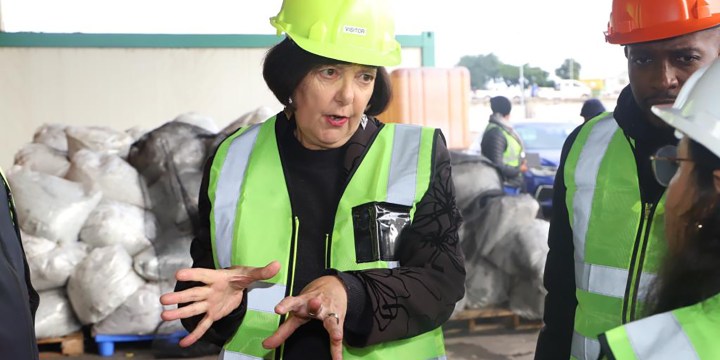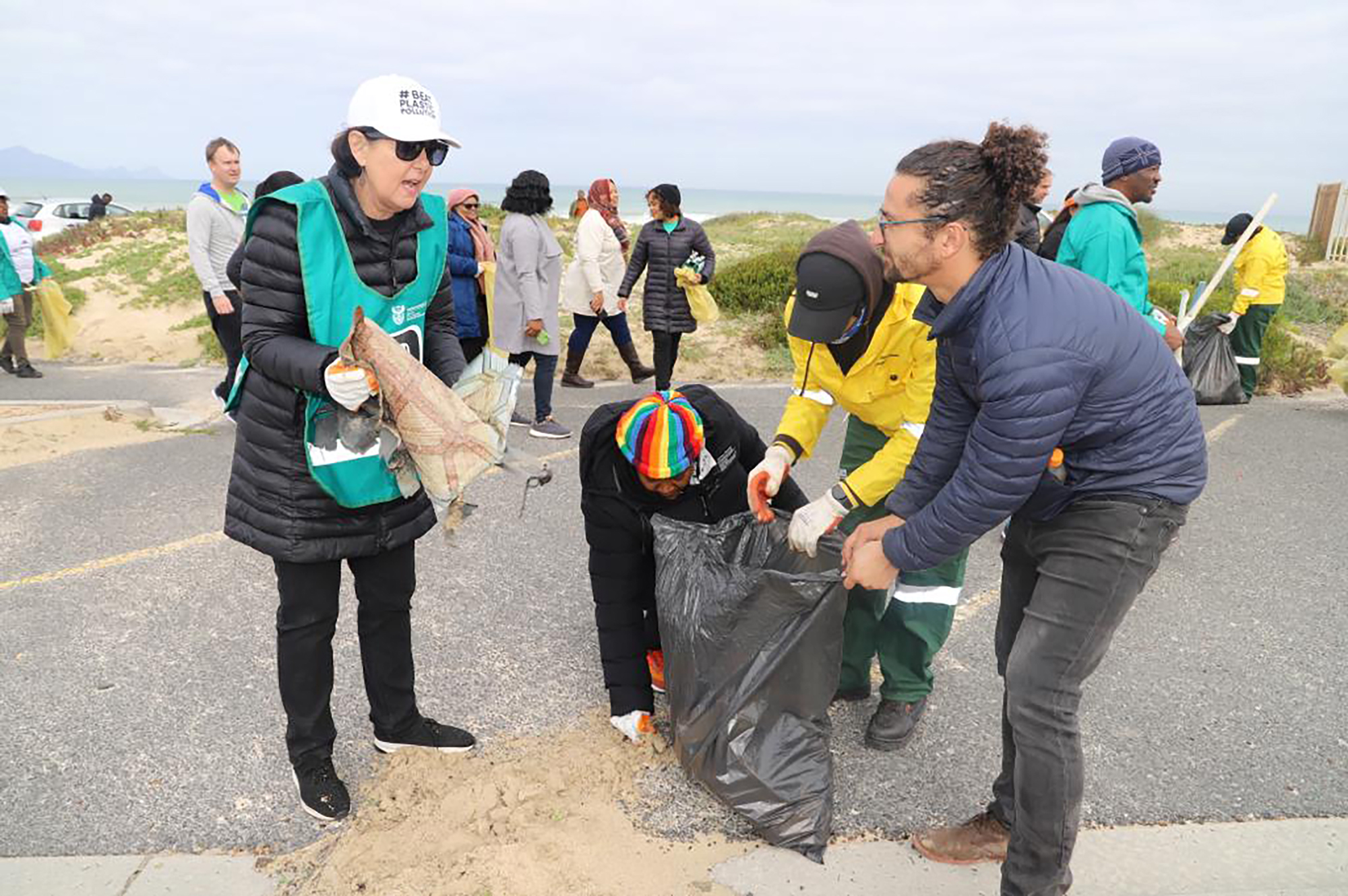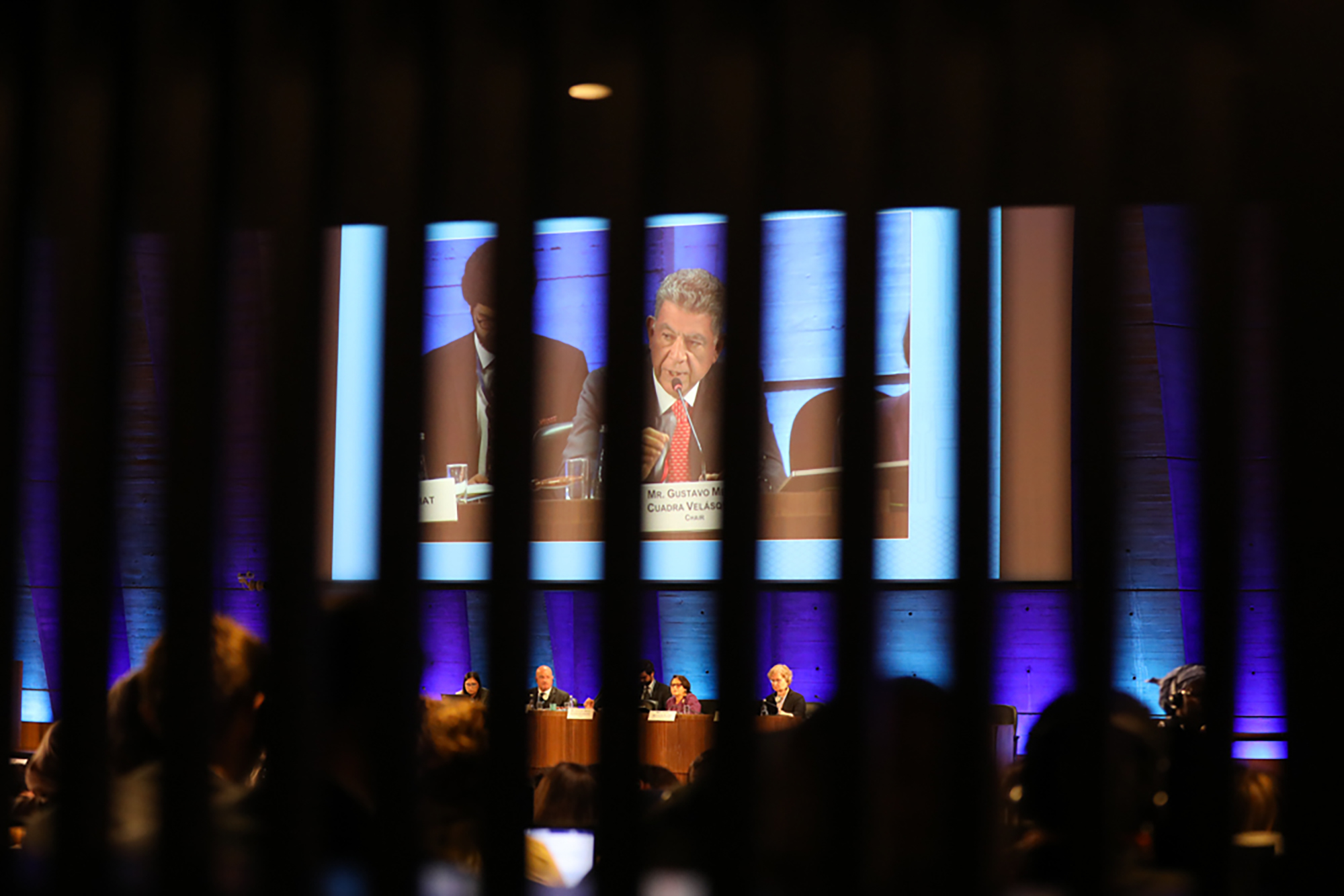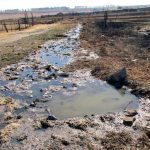WORLD ENVIRONMENT DAY
What the SA government is doing to hold plastic producers accountable

After a departmental delegation returned from international negotiations on a plastic treaty in Paris, Environment Minister Barbara Creecy hosted World Environment Day on Monday. She emphasised the urgent action that is needed to address plastic pollution and highlighted what her department was doing to contribute to this necessary change.
‘Urgent action is required to combat plastic pollution and its detrimental impacts on human health, the economy and the environment,” said Minister of Forestry, Fisheries and the Environment Barbara Creecy on Monday.
Creecy’s department was hosting World Environment Day 2023 in Cape Town in partnership with the United Nations Environment Programme (Unep).
This year’s World Environment Day is focused on finding solutions to eliminate waste and pollution, especially plastic, under the theme #BeatPlasticPollution, with the Department of Forestry, Fisheries and the Environment (DFFE) wanting to raise public awareness about the triple planetary crises of climate change, biodiversity loss and pollution.
Every day, the equivalent of over 2,000 garbage trucks full of plastic is dumped into our oceans, rivers & lakes.
This #WorldEnvironmentDay is a call to #BeatPlasticPollution.
We must work as one to break our addiction to plastic, champion zero waste & build a circular economy. pic.twitter.com/W9IHyhE61b
— António Guterres (@antonioguterres) June 4, 2023
Globally, an estimated 353 million tonnes of plastic waste are produced each year, only about 10% of which is recycled.
Locally, according to the World Wide Fund for Nature in South Africa, a little over 2.5 million tonnes of plastic are produced annually. The DFFE said poor waste management practices mean that as much as half of post-consumer plastic is not properly disposed of and risks leaking into the environment.

Minister of Forestry, Fisheries and Environment Barbara Creecy during a clean-up at Macassar Beach in Cape Town on World Environment Day, 5 June 2023 (Photo: DFFE)
World Environment Day comes off the back of the second meeting of the Intergovernmental Negotiating Committee (INC-2) on Plastic Pollution that took place in Paris last week, where 175 nations, including South Africa, reaffirmed their commitment to developing an international legally binding instrument to end plastic pollution, including in the marine environment, by the end of 2024.
Read more in Daily Maverick: SA officials in Paris to negotiate a legally binding global plastic treaty
“In my view, such an international legally binding agreement aims to bring about greater accountability, cooperation and innovation between government, industry, extended producer schemes and waste reclaimers to address the plastic pollution problem,” said Creecy on Monday.
Earth Negotiations Bulletin reported that the end of the meeting saw delegates agree to set out a path for the phase between the INC-2 and the INC-3, mandating the preparation of a “zero draft” of the new plastic treaty to be considered at INC-3.
Ghana, for the African Group, supported establishing an international legally binding instrument, which is something the SA delegation also sought to do.

On the second day of INC-2, delegates continued debating the rules of procedure on 30 May 2023. (Photo: IISD / ENB / Kiara Worth)
“In South Africa, the negotiating process is already bringing about greater agreement collaboration between all stakeholders as they work to identify achievable goals to ensure plastic waste and pollution is effectively addressed,” said Creecy.
Placing responsibility on the producers
Creecy acknowledged that South Africa had significant waste management challenges, which included “poor landfill practices and sporadic household waste collection as well as unacceptable levels of illegal dumping in many parts of the country”.
She said that South Africa’s Extended Producer Responsibility (EPR) schemes for paper and packaging had begun the important work of diverting waste from landfill sites.
The EPR is a policy approach that shifts the responsibility from the consumer to the producer when it comes to waste management. It was established in 2008 and requires producers to develop and submit waste management plans and to finance the collection, recycling, and disposal of the waste generated by their products.
Jane Barrett from Women in Informal Employment: Globalising and Organising, which supports the organising of waste pickers, previously explained to Daily Maverick that the EPR gets manufacturers to take responsibility for some of the costs of the disposal and/or recycling of their products and packaging.
For example, products like paper and packaging, electrical and electronic equipment (e-waste), lighting and tyres have been identified by SA legislation as having a significant environmental impact and are subject to EPR legislation.
Creecy said that last year more than 1.5 million tonnes of paper and packing were diverted from landfills through recycling, recovery and treatment.
To commemorate World Environment Day, Creecy visited two recycling plants in Cape Town to gain insights into the roles EPR schemes are playing in plastic recycling.
What the government is doing
Creecy has previously acknowledged SA’s failing waste management system, which is run by local municipalities, reporting that a third of households still don’t have weekly waste removal.
To support municipalities, Creecy said her department would focus on improving cleanliness in provincial capitals as part of the reinvigorated Presidential Good Green Deeds Programme.
“Here in the Western Cape we will be focusing on the broader Cape Flats region where many formal and informal settlements have inadequate waste removal and plastic leaches into rivers and eventually into the sea,” said Creecy.
Through the Expanded Public Works Programme, the DFFE would offer work opportunities to 2,000 women, young people and persons with disabilities per province to support the cleaning and greening of provincial capitals by assisting in litter picking in prioritised streets as well as clearing illegal dumps, planting trees and promoting recycling services.
“Their efforts are being complemented by the 32 waste enterprises that have been supported to increase recycling of construction and demolition waste, plastic, packaging and other waste streams,” said Creecy.
The minister said that through her department’s Recycling Enterprise Support Programme, 56 start-ups, emerging SMMEs and cooperatives operating in the waste sector had been supported in the past six years, with the department providing more than R300-million in financial support, creating 1,558 jobs and diverting more than 200,000 tonnes of waste from landfills. DM





















 Become an Insider
Become an Insider
Stop using plastic, find bio degradable alternatives
Gosh must be an election soon! The packaging of everything in plastic needs to stop then there would be far less plastic litter to start with